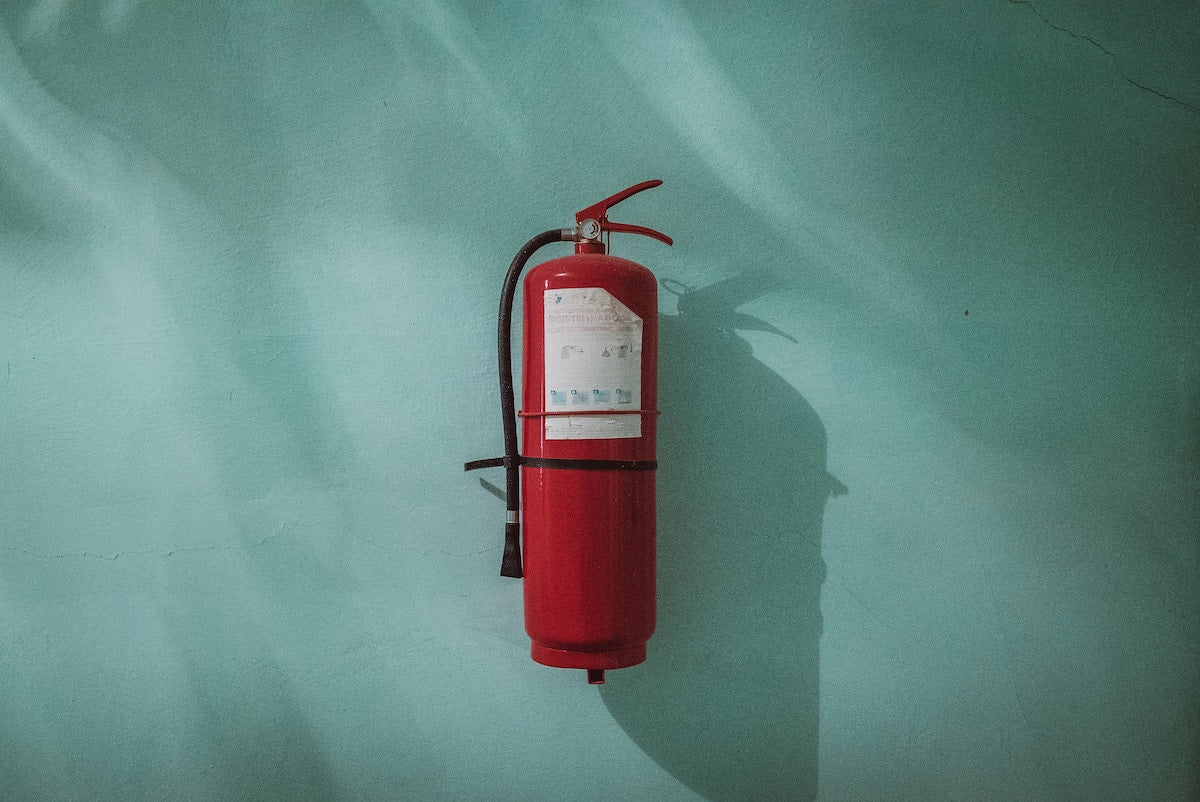Believe it or not, fire-related accidents in the workplace are more common than you think!
According to the U.S. Fire Administration, almost half a million structure fires ignited in 2017 – and 28% of them were non-residential fires, which caused 1,200 injuries and more than $2.7 billion in damages.
Not only can fires be incredibly dangerous for your customers and employees, but they can also cause damage beyond physical repairs, costing you weeks or months of lost revenue.
The good news is that reducing the risk of fires at your business can make a huge difference in protecting your customers, employees, and property.
To help your business get started, we’ve rounded up a few tips:
Fire Safety Tip #1: Check Potential Fire Hazards
Before you get started with developing your fire safety plan, it’s important to identify any potential fire hazards that may cause a fire to break out.
While fire sources will likely be specific to your business, we’ve highlighted some preventative measures that you can take to minimize your risk:
-
Make sure to keep your business clutter-free and well-organized.
-
Keep paper, rags, or other combustible materials away from any source of ignition (including space heaters or furnaces).
-
Make sure machines and equipment are clean and well-maintained.
-
Properly store flammable products and materials in cabinets and away from ignition sources.
-
Check appliance cords and make sure that any cords with broken connectors or cracked insulation are replaced.
-
Allow space behind any appliances to allow air to circulate and prevent overheating.
-
Designate a smoking area over 20 feet from the exterior of the building.

These are just some precautions that could apply to your business, but it’s important to note that there will be hazards (not listed) that are specific to your business.
If you need help identifying these risks, we recommend calling in a professional.
Fire Safety Tip #2: Create an Evacuation Plan
Next up is building a sound evacuation plan.
This plan should be well-thought-out and specific to your employee’s needs as the ultimate goal of an evacuation plan is to develop a route for your employees and customers to safely evacuate the building.
Once you’ve developed the plan, make sure that it’s posted around the building and office so that all employees can easily access it. It’s also important to go through the plan with your employees so that they understand exactly what to do in the event of an emergency.
And make sure to practice! This includes doing regular fire drills to make sure everyone arrives safely at the designated meeting space outside the building. Depending on the size of your building and number of employees, you may want to organize practice evacuation drills several times a year.

It’s also very important that businesses that have employees with disabilities develop a detailed plan for additional assistance in an emergency. For more information, the NFPA (National Fire Protection Association) has created a detailed guide on emergency evacuation planning for people with disabilities.
Fire Safety Tip #3: Train Employees & Designate Fire Warden
In addition to practicing the evacuation procedures with your employees, it’s also a good idea to make sure that they’re trained on basic fire safety.
All employees should know how to prevent a fire, as well as what to do in the case of a fire. This includes understanding where the emergency exits, fire alarms, and fire extinguishers are.
Depending on the type of business you operate, your workplace may be more or less prone to fires than others. If your workplace is considered at higher risk, your employees should receive professional fire safety training.

But no matter the type of workplace, it’s really important to have one or more people in charge of creating and maintaining fire safety procedures.
These employees can be designated as ‘fire wardens’ so that other employees can go to them with any fire safety-related questions. Your designated fire wardens should also receive additional training on how to evacuate the building safely and how to use basic fire-fighting equipment.
Fire Safety Tip #4: Ensure You Have the Proper Safety Equipment
Every business must have functioning fire extinguishers, smoke alarms, sprinkler systems, fire alarms, and other basic fire equipment.
However, if your building has special equipment that is capable of overheating (i.e. commercial cooking equipment, manufacturing equipment, flammable materials, etc.), you may want to look into more advanced options that are suitable to your specific needs.

For basic fire safety precautions, you should include a first aid kit that is easily accessible by employees. In the event of an emergency or fire-related injuries, your employees need to know exactly where the first-aid is located.
If you don’t already have a first aid kit, you can purchase one from the Red Cross. Their kits start at just $27 USD and include all the necessities that help treat most common injuries, including cuts, scrapes, swelling, sprains, strains, and more.
You may also want to install Notion Sensors around your small business near UL-listed smoke alarms! That way, you can receive an alert on your smartphone when the alarm sounds so you can take action. This is a great way to stay on top of potential fires when you aren’t physically at your business.
Fire Safety Tip #5: Make Sure All Equipment is Up-to-Date
In addition to having functioning fire extinguishers and smoke alarms, it’s just as important to make sure that they’re properly updated and maintained.
To start, fire extinguishers have a shelf life of between 5-15 years. Over time, fire extinguishers can lose their pressure and essentially be ineffective. To make sure that they are working properly, check the pressure gauge at least once a month.
It’s also important to replace your fire extinguisher if you notice any of the signs of ware:
-
The handle is broken or missing
-
The hose or nozzle is cracked or damaged
-
The locking pin on the handle is unsealed or missing
-
The inspection sticker or service record is missing

You’ll also need to make sure your smoke alarms are well-maintained. The life expectancy of a smoke alarm is only 8-10 years and you should change the batteries every six months.
Finally, make sure to schedule regular electrical inspections to keep all systems in safe working order!
Fire Safety Tip #6: Communicate With Your Staff
Last but not least! Remember that preparation is one of the most important parts of fire safety, and you can’t do this without communication.
Having strong communication with your employees about fire safety and your emergency plan is critical to successfully preventing injuries and property damage.
This includes providing your employees with specific details about where to go when they’ve evacuated and how they will be notified about an emergency.

For example, should they be looking out for a voice alert, bell, whistle, or another form of communication? Small details like this will make a huge difference in helping your employees feel prepared.
Thanks for reading! We hope that you learned a few new tips on how to keep your employees and property safe in the event of an emergency.





